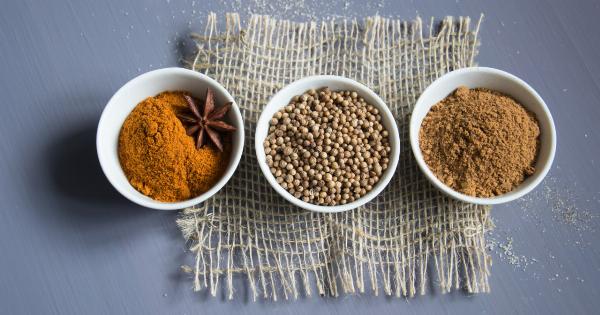In recent years, spicy foods have become increasingly popular. Many people love the sensation of heat on their tongue and the various benefits associated with eating spicy dishes.
However, eating spicy foods is not always a good idea, especially if you have a stomach ulcer. Stomach ulcers are a type of sore that develops in the lining of the stomach, often leading to indigestion, pain, and other unpleasant symptoms.
In this article, we’ll explore how spicy foods affect stomach ulcers and what you can do to manage your symptoms.
What Are Stomach Ulcers?
Stomach ulcers, also called gastric ulcers, are open sores that develop in the lining of the stomach. These ulcers are formed when stomach acid erodes the protective layer of mucus that lines the stomach wall.
As a result, the acid comes into direct contact with the stomach lining, causing damage and inflammation. Common symptoms of stomach ulcers include:.
- Abdominal pain or discomfort, especially after eating
- Heartburn or indigestion
- Nausea or vomiting
- Bloating or fullness
- Loss of appetite or weight loss
If left untreated, stomach ulcers can cause complications such as bleeding and perforation of the stomach wall.
How Spicy Foods Affect Stomach Ulcers
Spicy foods are often associated with stomach discomfort, including heartburn, indigestion, and diarrhea. However, many people wonder if eating spicy foods can also cause or aggravate stomach ulcers. The answer is not straightforward.
A study conducted by the University of California, Los Angeles found that capsaicin, the chemical that makes chili peppers spicy, can actually reduce the risk of stomach ulcers.
Capsaicin stimulates the production of gastric mucus, which acts as a protective barrier against stomach acid. Additionally, capsaicin has anti-inflammatory properties, which can help reduce the inflammation in the stomach lining that causes ulcers.
However, this doesn’t mean that you should start consuming copious amounts of spicy food if you have a stomach ulcer. While capsaicin may have some benefits, consuming too much spicy food can still irritate the stomach lining and worsen ulcers.
Additionally, some people may be more sensitive to spicy foods than others, and consuming even small amounts can cause discomfort.
Managing Stomach Ulcers
If you have a stomach ulcer, it’s important to manage your symptoms and avoid anything that could make them worse. Here are some tips:.
1. Avoid spicy foods
While there may be some benefits to consuming capsaicin, it’s best to avoid spicy foods if you have a stomach ulcer or a history of stomach ulcers. Spicy foods can stimulate the production of stomach acid and irritate the lining of the stomach.
2. Eat smaller, more frequent meals
Eating large meals can put pressure on the stomach and increase the risk of stomach acid splashing up into the esophagus. Instead, try eating smaller, more frequent meals throughout the day. This can also help reduce acid reflux and indigestion.
3. Avoid alcohol and caffeine
Both alcohol and caffeine can irritate the stomach lining and worsen ulcer symptoms. If you’re trying to manage a stomach ulcer, it’s best to avoid or limit your intake of these substances.
4. Quit smoking
Smoking can increase the risk of stomach ulcers and delay the healing process. If you’re a smoker, it’s important to quit as soon as possible.
5. Take over-the-counter medications
If you’re experiencing symptoms of a stomach ulcer, over-the-counter medications such as antacids or proton pump inhibitors (PPIs) can help reduce stomach acid and relieve discomfort.
However, it’s important to talk to your doctor before taking any new medications, especially if you’re already taking other medications or have underlying medical conditions.
Conclusion
Overall, spicy foods can have both positive and negative effects on stomach ulcers. While capsaicin may have some benefits, it’s best to avoid or limit your intake of spicy foods if you have a stomach ulcer.
Additionally, managing your symptoms through lifestyle changes and medication can help reduce discomfort and promote healing. If you’re experiencing symptoms of a stomach ulcer, it’s important to talk to your doctor right away.




























